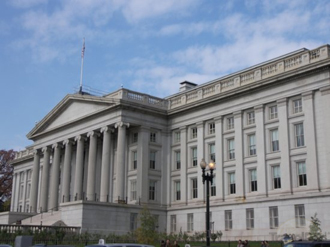The resentment that demagogues have recently spawned against the very notion of paying a fair share of taxes to support our current level of government cries out for some perspective on why we need governments more than ever — big, well-funded ones.
The short answer is that we live in an age of global forces that need massive collective action to control.
Nightmare smog in Beijing last weekend grounded hundreds of flights and forced people to don face masks to keep from choking. High levels of lead and other heavy metals dumped by factories have poisoned up to 10% of China’s farmland and water supplies. A S. Korean woman died recently from the human version of mad-cow disease because she received a contaminated German tissue transplant 24 years ago which, in time, riddled her brain with misfolded proteins called prions, turning it into a sponge.
No individual or even groups of saintly paragons of virtue can stand up to enormous multinationals chartered to exploit hundreds of thousands of workers and tens of millions of consumers, or armies of hate-filled well-armed terrorists, or 700 million cars spewing more pollution than our atmosphere can handle, or gargantuan industrial plants pouring toxins and radiation into our rivers and oceans.
Against such forces we have only two options — commit ourselves to maintaining governments costly and powerful enough to handle such threats or to embrace anarchy and return to a state of nature.
It seems that some of our prospering citizens and their minions are forgetting that well functioning governments are what keep angry mobs from looting and burning their homes and businesses. The same goes for some of our less affluent citizens who seem to forget that they have been enjoying an economic safety net that would not have existed but for the government.
Faith in governments allow us to move about freely carrying only a cellphone and a wallet instead of pulling carts loaded with rice or potatoes or coal.
Only governments are keeping factories from resorting to the expedient of dumping mercury, lead, cadmium, cyanide and other toxins into our streams and rivers.
Governments allow us to fly without undue fear of mid-air collisions, or simply drive across town without having to dodge myriad pileups and gridlocked intersections, or walk across a street without risking our lives.
Massive and timely measures taken by governments in response to the threat of mad-cow disease is what allows us today to eat burgers and barbecues without fear that they may infect our brains with those fearsome prions.
Is government too costly? Of course, as is everything else. Is it inept and corrupt? It contains as much of those flaws as any organization of comparable size. Do we have to reform it? Every entity benefits from constant vigilance and an occasional spring cleaning.
What’s ironic is that the current anti-government mood has been fed by an economic crisis created by private greed far more than government ineptitude. The government may be faulted for not having been more vigilant about the possible consequences of unbridled greed on the part of a few dozen financial firms gambling with the nation’s life savings, but ultimately it was the government’s determined application of such powers as it could muster that kept the crisis from descending into one of far more painful dimensions.
In fact, the downward spiral in rationality, civility and humanity that accompanies global economic meltdowns was checked only because of the existence of governments powerful enough to command the respect of most of the population. Without that power and credibility in the institutions we created to keep us functioning as a civilized and rational society, those demagogues may today be leading hungry bedraggled mobs on looting expeditions — or be lying somewhere, bloody and battered, themselves the victims of such mobs.
It’s time our political leaders elevated the level of discourse by remembering why we have the social contract — to spare us the nasty, brutish and short lives we humans lived before we devised these costly, imperfect governments.

